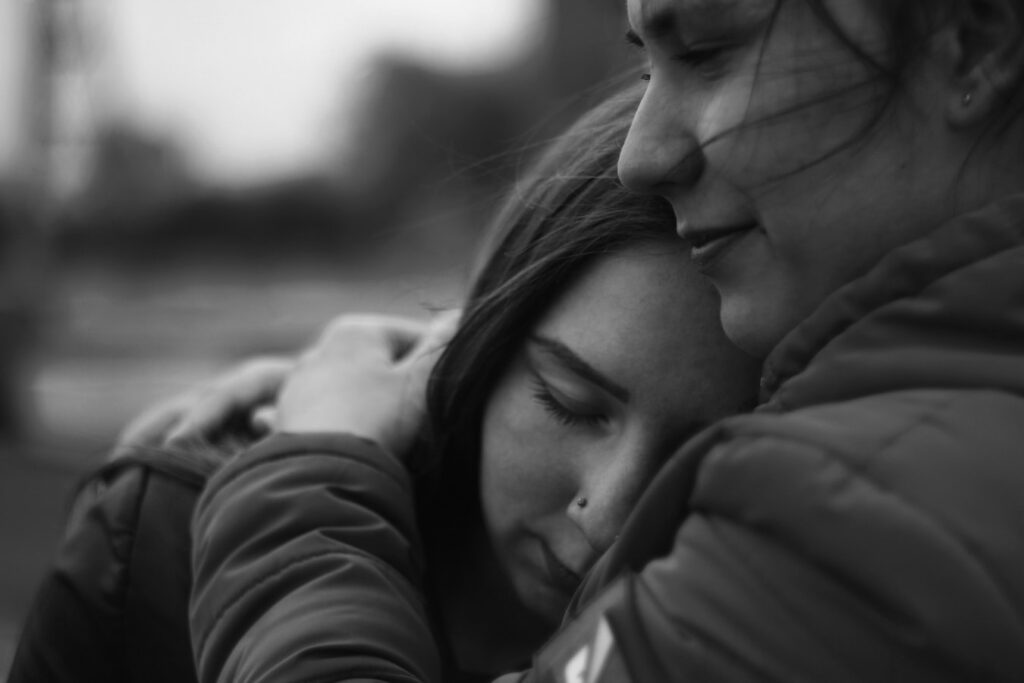
When I was a teenager, there was a boy I thought needed saving. He was a boy whose home life was unstable, and whose mother didn’t seem to pay enough attention. When we started dating, he told me he needed me. Our relationship was a rocky one — I was always having to prove my love, and he needed all of my time and emotional energy. He was controlling and manipulative, and when he didn’t get his way, I paid for it.
Over time, he became violent. I can still remember the first time he hit me, but I was sure my love could change him for the better. It didn’t occur to me until much later that I was the one in need of saving.
RELATED: Real World Ways to Cope With Heartbreak
I was that person who went from being exuberant and outgoing, to dulling in color over time. I stopped spending time with friends and when I did, I was distracted and morose. My friends tried to get me back, they loved me and knew my relationship was unhealthy, but few of them knew what to say or how to help.
From an outsider’s perspective, it is easy to think, “Why don’t they just leave?” It can feel impossible to know what to do, and often voicing what we think our friend needs is actually doing more harm than good. I had many friends who told me I had to choose, it was either them or him; they wouldn’t stand by and watch me hurt myself by staying with him. I did not choose them, and I became more isolated than ever in the process. I eventually was fortunate enough to get out of my situation, but with three women killed by an intimate partner every day in the United States, breaking through to a friend in need can be life-saving.
Your instinct is probably telling you they need to end the relationship. You might want to explain all the things you don’t like about their partner. You definitely don’t want to see them get hurt anymore. While this all may come from a place of genuine love and concern, I also know from experience giving advice or even criticizing your friend’s partner probably won’t work, and there’s a chance your friend will stop confiding in you about the relationship altogether.
What I needed from my friends while I was in an abusive relationship was someone to listen — without judgment or blame — when I was ready to open up. Instead of endless advice, I needed an outlet, someone I could trust to listen to all the scary stuff without abandoning me. If you have a friend in a similar situation, the more they feel they can be honest with you about what’s going on, the more likely the two of you will be able to have authentic conversations about your concerns — and theirs.
If your friend trusts you enough to open up and you’re not sure how to respond, tell them that none of this is their fault. This may seem obvious, but I can tell you from experience that abusive partners are really good at shifting the blame. If only I had answered the phone every single time he called there would be no reason to be distrustful. If only I spent every second of my time with him there would be no reason to doubt my love. When someone is in an abusive relationship, trying to make sense of everything, it’s impossible to see straight. They need a friend to say “I’m so sorry this is happening. This isn’t your fault. I’m here to help you figure this out.” Your friend will need to hear this again and again, so don’t give up. Each time you build them up, you’re putting a little crack in the façade their partner has created.
When your friend is ready for deeper conversations, encourage them to reflect on their relationship. Ask them what they do and don’t like about the relationship, if they’re ever afraid of their partner, or if their partner does anything that really crosses a line. Let your friend draw their own conclusions about what they should do. While it may be hard to watch, your friend is the expert on their life, not you. They need to be the one to decide whether to stay or go.
And here is the hardest part: Supporting them even when you wish they’d do something different. Your friend is not always going to reach the same conclusions you have about this relationship or any other. We all have different boundaries and expectations when it comes to dating, and although it’s important — even difficult — to have these conversations, it is not our job to tell our friend what to do. Their partner is already doing that.
Ultimately, it was having steadfast friends who I knew I could trust that saved me when my relationship became unsafe, when I finally decided enough was enough. While some tried, but ultimately pushed me farther into the isolation my partner was skillful at creating, a few friends saw that I needed saving and stuck with me through it all. Be that steadfast friend. Be that friend when it’s really, really hard, and stick close by your friend’s side so you’re there when they realize enough is enough.
If you or a loved one is in an abusive relationship, call the National Domestic Violence Hotline at 1-800-799-7233 or go to https://www.thehotline.org/resources/ for additional resources.